There are clear choices for Arizona secretary of state. Here's a guide to help you choose
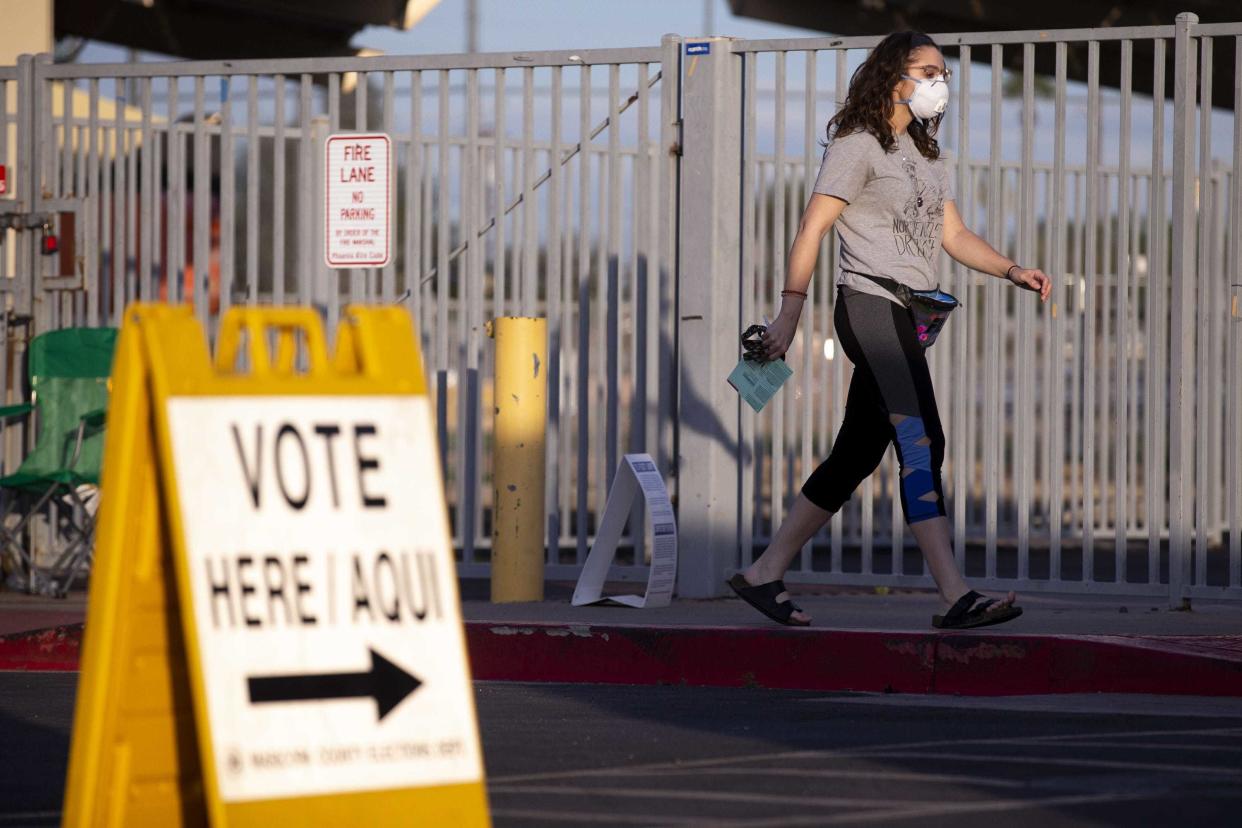
- Oops!Something went wrong.Please try again later.
- Oops!Something went wrong.Please try again later.
The race for secretary of state this fall will offer Arizona voters a sharp contrast: A Republican who favors tougher ID and other rules to cast a ballot versus a Democrat who sees these efforts as unnecessary at best and voter suppression at worst.
How sharp of a contrast will depend on who emerges from the primaries in August.
There, too, Arizonans have clear choices.
Especially in the GOP race, whose candidates range from a Stop the Steal evangelist to a political novice who advocates a nip here, a tuck there in the election system to instill public confidence.
At stake for both political parties is advancing a nominee who can garner sufficient support from a diverse and polarized electorate to win office.
Where Republican candidates stand
Two of the four Republicans – state Reps. Mark Finchem and Shawnna Bolick – said had they been the secretary of state in 2020, they would not have certified the election showing a narrow Joe Biden victory over Donald Trump. Even if the law calls for it.
In fact, they sought to overturn the results.
The two were among a group of GOP lawmakers who signed on to a letter to then-Vice President Mike Pence asking that an alternate slate of electors for Trump be accepted instead, or for all the electoral votes to be nullified until an audit could be done.
Mark Finchem
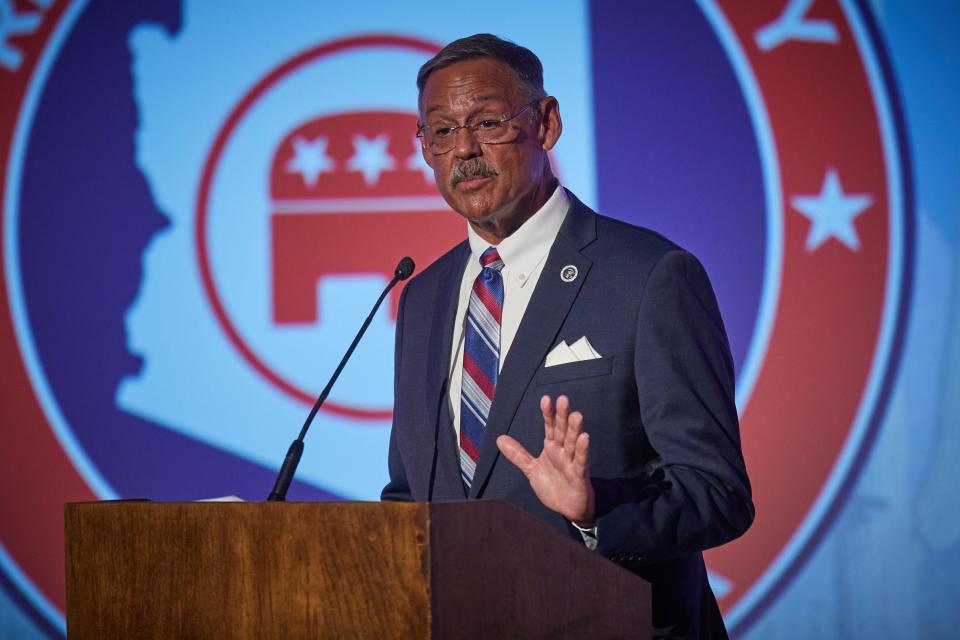
Finchem has been the more extreme. He was one of the planners of the Jan. 6, 2021, rally in Washington, D.C., that emboldened some of the protesters to storm the Capitol and which is now the subject of hearings by a House Select Committee. The architect of that Jan. 6 rally, Ali Alexander, credits Finchem as the singular force behind the Stop the Steal movement in Arizona.
Finchem is part of a coalition of America First candidates across the country seeking to become the chief elections officer at the state level.
Independents needed: 4 Senate races that could use moderate voters
One of them, Tina Peters in Colorado, is under indictment on identity theft and other felonies over actions she took as county recorder in her attempts to prove the 2020 election was rigged. She lost, but at least one America First candidate has advanced to the general election.
Finchem wants to outlaw early voting, used by an overwhelming majority of Arizonans, and require all ballots to be hand-counted.
Shawnna Bolick
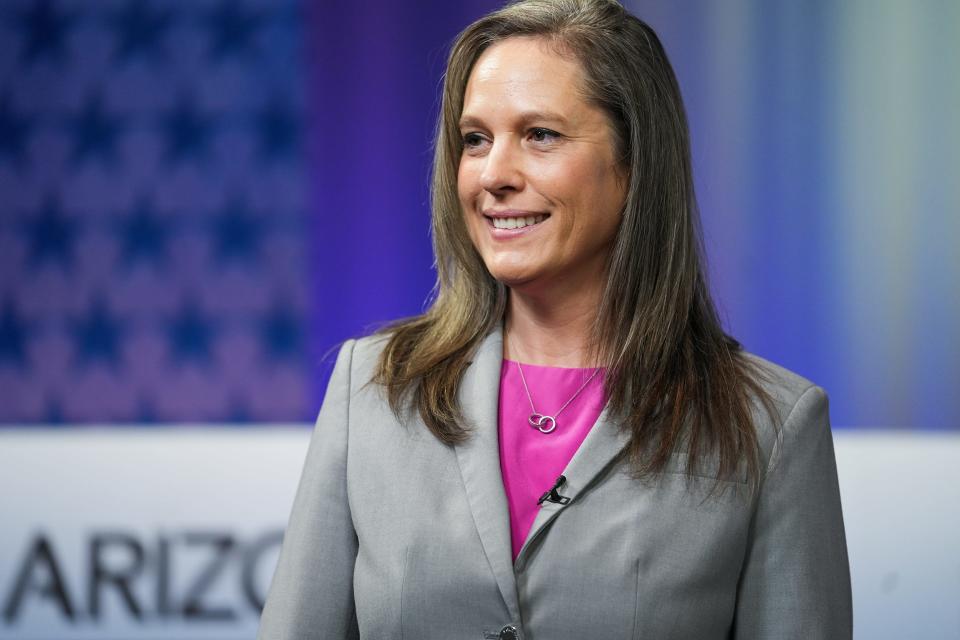
Bolick hasn’t espoused conspiracy theories, but she hasn’t refuted them, either. She regularly references the tens of thousands of emails from individuals who believe widespread election fraud was committed, for which she uses as a basis for sponsoring and supporting legislation.
She introduced a bill that would allow the Legislature, by simple majority, to revoke the secretary of state’s certification of elections – in essence, giving lawmakers the power to pick their own electors to vote in the Electoral College.
Clock's ticking: With primary election weeks away, legal challenges persist
Bolick says the intent is more nuanced than that. She envisioned creating a bipartisan legislative commission to review election results and would only invoke the Legislature’s override authority if misconduct was found.
She doesn’t acquit herself well, however, at explaining why that language wasn’t in the bill. Or why, if misconduct is found, lawmakers deserve a trump card to overturn the will of the voters.
Michelle Ugenti-Rita
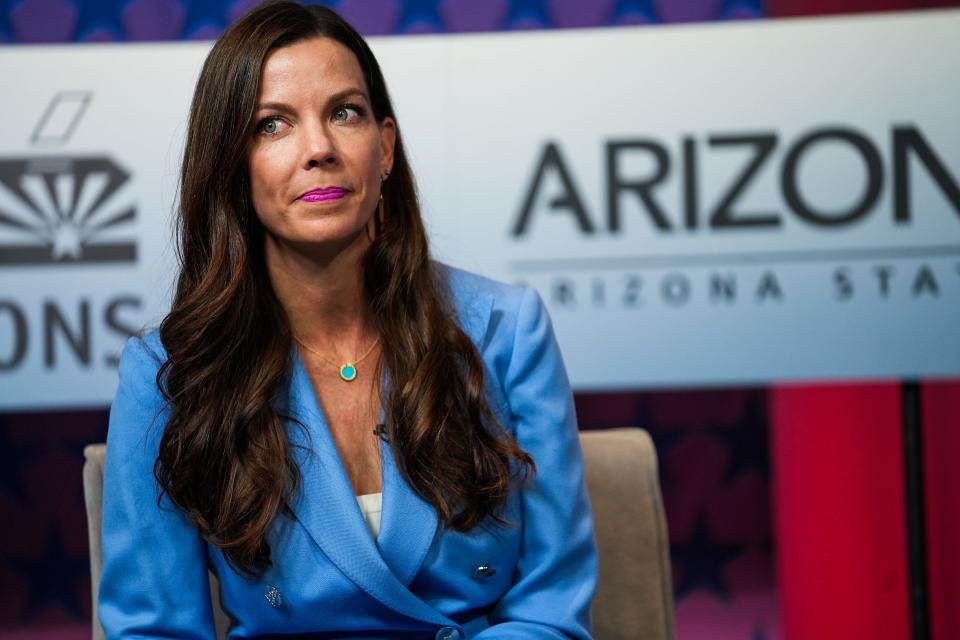
State Sen. Michelle Ugenti-Rita is more moderate, which is best illustrated by the ire she drew from fellow conservatives for thwarting them on questionable proposals, such as one made popular by the conspiracy theory film “2000 Mules” that would have banned the use of ballot drop boxes unless they were monitored.
But along with other Republicans, she supported an audit of Maricopa County, though she later slammed it as “botched.”
Ugenti-Rita does boast meaningful credentials. She sponsored legislation that outlawed the practice of campaign workers or volunteers to gather and turn in early ballots – a practice derisively called “ballot harvesting” – and another that removed infrequent voters who are on the early voting list from continuing to automatically receive ballots in the mail.
Both became law. The ballot harvesting ban was upheld by the U.S. Supreme Court in 2021.
Beau Lane
Those who dislike the trio for having a role in the laughable Cyber Ninjas audit have an option in Beau Lane, a longtime Arizonan who was recruited to run by prominent business leaders and, despite touting himself as an outsider, is endorsed by a list of former Republican officeholders the likes of Jan Brewer and Fife Symington.
Lane said Arizonans are tired of the toxic politics that have played out since the 2020 elections. He doesn’t hem and haw when asked if the election system is safe and secure – he believes it is – but says in the same breath there’s always more that can be done “to improve the product.”
On that front, he is aligned with Ugenti-Rita. He distanced himself from the group of business leaders who criticized her legislation to prune the early voting list of those who haven’t cast a ballot in two consecutive federal elections. He now calls that a “commonsense law.”
He is also aligned with other Republican candidates on a citizen initiative that would toughen ID requirements for both in-person voting and voting by mail – part of the GOP mantra of making it “easy to vote, hard to cheat.”
Where Democrat candidates stand
Democrats, on the other hand, frown on efforts that place more restrictions on voting. Both Adrian Fontes and Reginald Bolding oppose the aforementioned initiative, known as Arizonans for Voter ID Act, and instead support ways to expand access to voting.
Voters looking to make a choice may be well served to weigh the differences in experience and approach.
Adrian Fontes

As Maricopa County recorder, Fontes tested the boundaries of his office’s authority on more than one occasion. To encourage voting in the 2020 Democratic presidential primary during the pandemic, he raced ahead with the idea of sending an early ballot to every registered Democrat, even though the law doesn’t grant such authority (he reasoned that it didn’t forbid the action) and the Secretary of State’s Office had counseled him not to. The state Attorney General’s Office eventually got a court order to halt that plan.
The Legislature has since enacted a law that makes it a felony to send an early ballot to voters who didn’t request one.
In another instance, the Arizona Supreme Court rebuked Fontes for exceeding his authority by explicitly instructing voters how to correct mistakes marked on their early ballots, instead of observing the law requiring them to request a new ballot.
Reginald Bolding
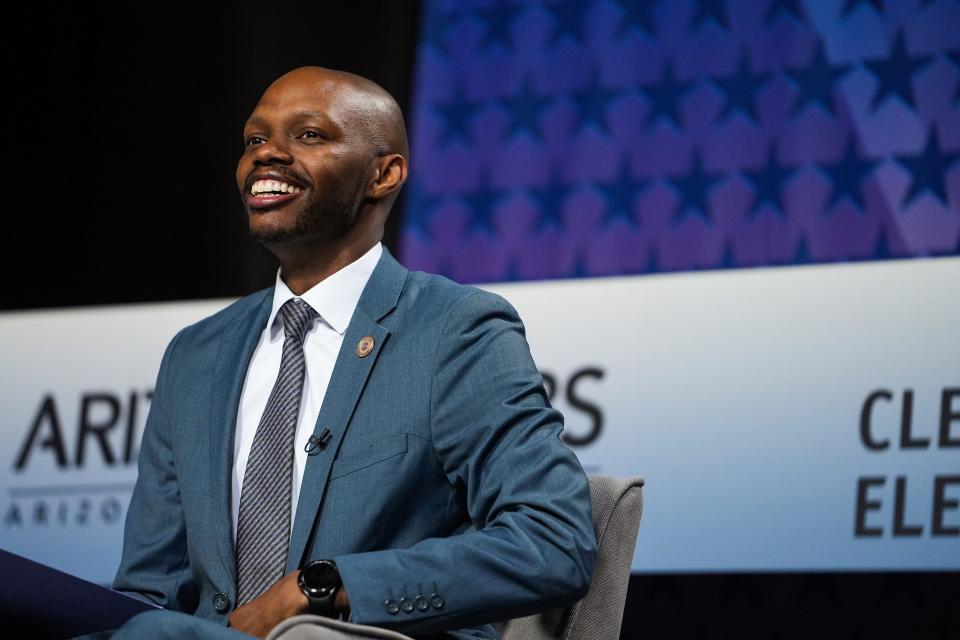
Bolding, trained as a teacher and seasoned by years of community organizing, is known to be more of a consensus builder. He may be unable to match Fontes’ experience at running an elections office but is equally well-versed in voting issues and legislation, given his role as minority leader.
And having helped register tens of thousands of voters in metro Phoenix, Bolding is perhaps the best equipped among the six candidates to speak about what changes may improve or hurt voter participation and understanding of the election process.
Who Democratic and Republican voters – and independents who request the ballot of one side or the other – nominate could go a long way toward putting the 2020 election behind us and pointing the way to greater trust and confidence in our election process.
This is an opinion of The Arizona Republic’s editorial board. What do you think? Send us a letter to the editor to weigh in.
This article originally appeared on Arizona Republic: Where Arizona secretary of state candidates stand in 2022 primary

